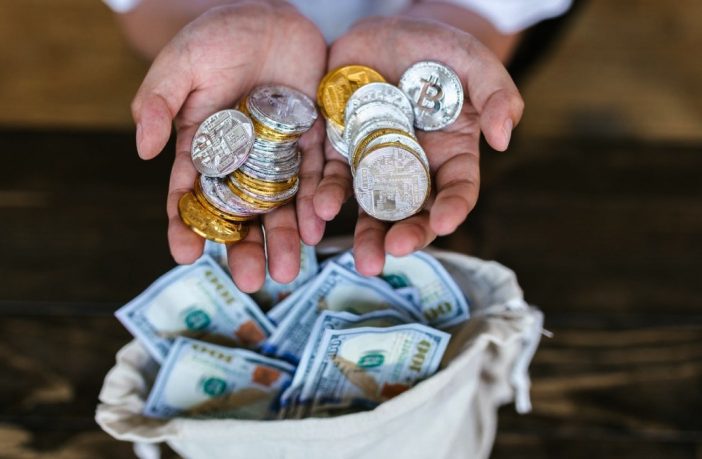A decentralized autonomous organization (DAO) is like “an Internet-based community with a shared bank account.” You can think of it as a mutual fund where, instead of a central manager, participants decide on investment and other decisions. DAOs only exist on a blockchain and their rules are coded in “smart contracts”. Since DAOs operate on public blockchains, anyone can check and verify all financial transactions made by the DAO.
Members of a DAO don’t have to trust each other: they have to trust the code.
My favorite DAOs are:
- Aave
- Compound
- Decreed
- Maker
- Uniswap
DAO hacking
DAOs didn’t get off to a great start. The very first DAO was “hacked” and ultimately led to the original Ethereum network being split in two.
Surprised? Let’s go back to 2016.
The first DAO raised around $150 million worth of Ether (ETH) through a token sale. But a hacker exploited a “smart contract” bug and siphoned off all the money!
However, logically, nothing should have been done about this. Blockchains are “immutable” and “censorship resistant”, right? But a “hard fork” has been put in place. This set back the history of Ethereum before the hack.
This reallocated the hacked ETH to another “smart contract” and allowed investors to withdraw their funds. The “purists” hated this and this is what led Ethereum to split into 2 blockchains: Ethereum and Ethereum Classic.
1.AAVE
Governance token: AAVE
Maximum bid: 16 million
The Aave protocol allows lending and borrowing of crypto. Lenders deposit digital assets into liquidity pools. Borrowers provide crypto collateral and take out “flash loans” using the liquidity pools.
As a token, it offers holders reduced fees and also serves as a governance token by giving holders a vote in the development of the protocol.
Users can participate in the project governance process by holding AAVE and/or stkAAVE tokens (AAVE stake).
![]()
2. Compound
Governance token: COMP
Maximum supply: 10 million
Compound is a decentralized finance (DeFi) lending protocol that allows depositors to earn interest on their cryptos. It also allows borrowers to obtain secured loans by posting collateral.
The protocol distributes 2,312 COMP daily as rewards to active lenders and borrowers. Essentially, users tend to accumulate COMP tokens as they participate in the lending and borrowing economy of the Compound ecosystem.
Anyone can create proposals independently by locking 100 COMP in an address. The proposal may concern changes in:
- The asset guarantee factor
- Interest rate models
- Adding or removing markets
- Other parameters used by the Compound protocol
A proposal is considered for voting if the nominator’s address is delegated 65,000 COMP. After a three-day voting process, proposals garnering at least 400,000 positive votes are queued for two days before being implemented.
![]()
3. Decreed
Governance token: DCR
Maximum bid: 21 million
Decred is a blockchain that uses a hybrid consensus mechanism. To vote, users “lock” their DCR to purchase tickets that can be used for both on-chain and off-chain voting.
For on-chain voting, the protocol randomly selects 5 tickets to examine the last block created by miners. A block is finalized if at least 3 of the 5 tickets vote that the block is valid. After the vote, the DCR is released and returned with the reward.
Off-chain voting takes place on the Politeia platform. This may relate to the expenditure of platform treasury funds and changes to constitutions and policies. Records, proposals and activities are periodically anchored to the Decred blockchain.
![]()
4. CreatorDAO
Governance token: MKR
Maximum Supply: Unlimited
MakerDAO is a decentralized organization while Maker Protocol is a software platform that allows users to issue and manage the DAI stablecoin. Maker (MKR) is the governance token of MakerDAO and Maker Protocol.
MKR is minted and burned depending on the debt status of MakerDAO. If the financial resources of the protocol cannot cover its debt, new tokens are issued. If there is a surplus, the tokens are burned.
To vote on proposals, users must own MKR or have it delegated to them. Next, you need to create a voting contract and lock the MKR tokens into it.
![]() 5. Uniswap
5. Uniswap
Governance token: UNI
Maximum bid: 1 billion
Uniswap is a very popular decentralized trading protocol for Ethereum tokens. It is an automated market maker and UNI is its governance token.
UNI holders collectively control:
- Uniswap Governance
- UNI Community Treasury
- The change in protocol fees
- Name Uniswap.eth ENS
- Uniswap default list (tokens.uniswap.eth)
- SOCKS Liquidity Tokens
Future DAO index
A crypto index is a mathematical method of tracking the performance of a group of crypto assets. Savvy investors use indices to make better decisions.
The Future DAO Index is a market capitalization index based on:
1.Aave (AAVE)
2. Compound (COMP)
3. Curved DAO Token (CRV)
4. Dash (DASH)
5. Decreed (DCR)
6. Creator (MKR)
7. SushiSwap (SUSHI)
8. Uniswap (UNI)
The base date for the Future DAO Index was Thursday, February 24, 2022.
Rohas Nagpal is the author of the Future Money Playbook and the chief blockchain architect of the Wrapped Asset Project. He is also an amateur boxer and retired hacker. You can follow him on LinkedIn.
Cryptocurrency is an unregulated digital currency that is not legal tender and is subject to market risks. The information provided in the article is not intended to be and does not constitute financial advice, business advice or any other advice or recommendation of any kind offered or endorsed by NDTV. NDTV will not be liable for any loss resulting from an investment based on any recommendation, forecast or other perceived information contained in the article.
Tech




